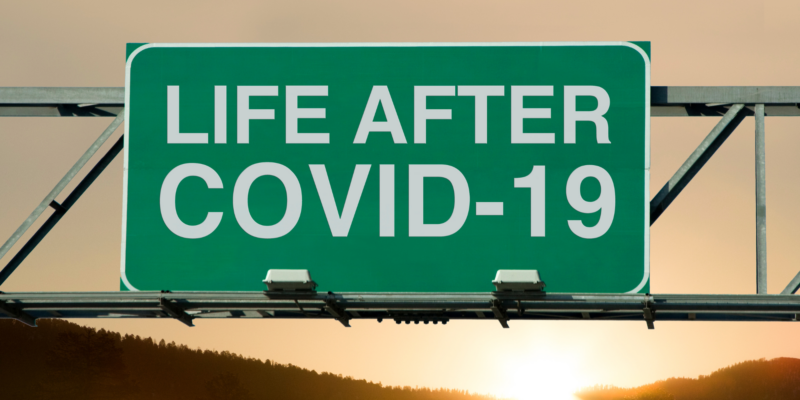Measurable Success: Goals are measurable benchmarks that allow agents to track their progress. By setting…

Can You Purchase Life Insurance After Recovering from COVID-19?
The spread of covid-19, or coronavirus, has caused a great deal of uncertainty and concern around the world. One major question is whether or not it’s possible to purchase life insurance after recovering from the virus. In this blog post, we will look at the current landscape of life insurance and how covid-19 can impact the process of purchasing a policy. We’ll also discuss some tips for those looking to buy life insurance after recovering from covid-19.
Understanding Life Insurance Coverage
Life insurance is a crucial investment that provides financial protection for your loved ones in case of your unexpected death. It’s a way to ensure that they can maintain their standard of living and cover essential expenses like mortgages, bills, and education costs.
Life insurance comes in different types, such as term life insurance and whole life insurance. Term life insurance is purchased for a set period, usually 10, 20, or 30 years, while whole life insurance covers you for the duration of your life.
When you purchase life insurance, you agree to pay a premium to your insurance company. In exchange, the company pays out a death benefit to your beneficiaries if you die while your policy is active. The amount of your premium and death benefit depends on factors such as your age, health, lifestyle, and occupation.
If you’re looking to purchase life insurance after recovering from COVID-19, it’s important to understand that your coronavirus diagnosis can impact your premiums and coverage. However, with the right approach, it’s still possible to secure affordable life insurance to protect your loved ones in case of the unexpected.
Can You Purchase Life Insurance After Recovering from COVID-19?
If you’ve recovered from COVID-19, you may be wondering if you can still purchase life insurance. The answer is yes, but it may come with some conditions and higher rates.
Life insurance companies are taking the COVID-19 pandemic into consideration when assessing potential clients. Depending on your individual case, you may face additional underwriting scrutiny or higher premiums.
The underwriting process for life insurance typically involves a review of medical history, a physical exam, and potentially some additional tests. If you’ve recently had COVID-19, the underwriter will likely want to see your medical records to ensure that you’ve recovered fully. They may also want to review any lingering health issues that have developed from the virus.
In general, life insurance rates are higher for individuals who have underlying health conditions or have had a serious illness. COVID-19 can fall under this category, and as a result, your rates may be higher than they would have been otherwise.
If you’re looking to purchase life insurance after recovering from COVID-19, it’s important to shop around. Compare rates and policies from multiple insurers, and consider working with a broker who can help you find the best deal. By doing so, you may be able to secure affordable life insurance that provides peace of mind for you and your loved ones.
What to Expect During the Underwriting Process
When you apply for life insurance after recovering from COVID-19, the insurance company will want to know more about your health status before deciding whether to approve your application or not. This process is called underwriting.
During the underwriting process, you will be required to provide your medical history, which includes your coronavirus diagnosis and any related treatment or medication you received. The insurer may also request your medical records and conduct a medical exam.
Based on the information gathered during the underwriting process, the insurer will evaluate your risk profile and determine the coverage and premiums you qualify for. Keep in mind that if you have recovered fully from COVID-19 and do not have any other health conditions, your chances of getting approved for life insurance are good.
However, if you have any long-term effects or complications from the virus, such as respiratory issues, the insurer may view you as a higher risk, which could affect your coverage and premiums.
It is essential to be transparent and provide accurate information during the underwriting process to avoid any discrepancies that could affect your application’s approval. Your insurance agent can guide you through the process and help you understand what to expect.
How Your Coronavirus Diagnosis Affects Your Rates and Coverage
If you have had a positive diagnosis for COVID-19, it is natural to wonder how it will affect your life insurance coverage and rates. In general, most insurers do not treat COVID-19 as a pre-existing condition. Therefore, you can still be eligible for coverage, though your application may be subject to closer scrutiny.
When determining your rates and coverage, insurance companies will take into account the severity of your illness, your recovery period, and any complications that arose during your illness. For example, if you were hospitalized or required respiratory support, this could have an impact on your premiums.
In some cases, insurers may postpone your application until you have fully recovered and your health has stabilized. Alternatively, they may require a medical exam or additional testing to ensure that you are in good health. Ultimately, the best way to get affordable coverage after COVID-19 is to work with a reputable insurance broker or agent who can help you find a policy that meets your needs and budget.



